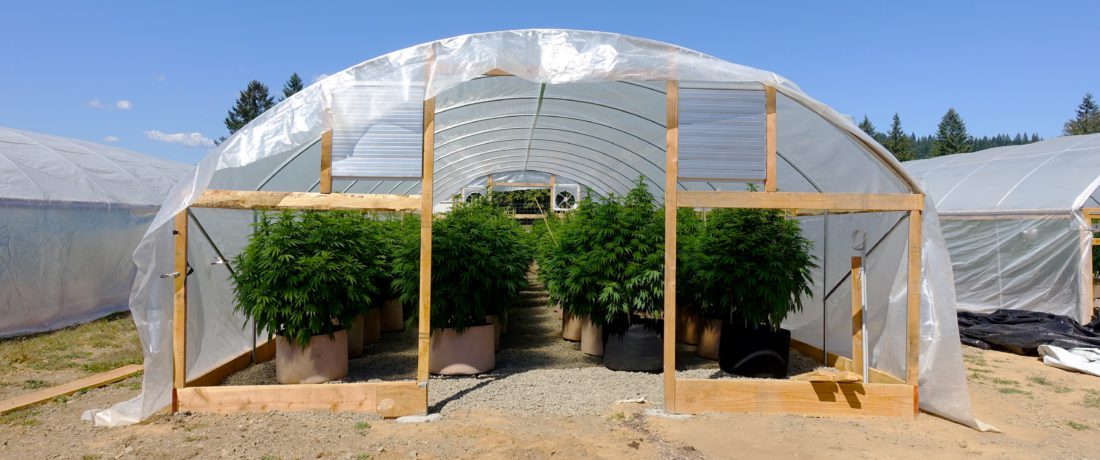Behind the Scenes of “Organic” Cannabis Certifications
The sun is shining, the days are longer, and the air is sweet and warm. Summer in Portland has arrived. With all of this incentive to get outside, our thoughts have journeyed past city limits towards the farms just beginning their growing seasons. As you may know, Farma is committed to sourcing mostly from “organic” cultivators, however the federal status of cannabis restricts the plant from receiving federal USDA organic certifications. This has led to a bewildering number of organic-like certifications for those states with legalized cannabis programs.
Cannabis is an incredible bioaccumulator, and has been used effectively as a bioremediator for soils contaminated with heavy metals and landfill byproducts.* Cannabis is very good at absorbing all sorts of compounds from its growing medium, meaning extra care needs to be taken with the cannabis we consume. One of the primary ways to ensure cannabis doesn’t contain unhealthy compounds is by looking for an organic-like certification.
Organic-like certifications are granted to growers and processors who apply for an audit through one of several companies. This entails filling out an application detailing their growing methods, an auditor visiting the farm to ensure that the requirements for certification are met, and paying a fee to the certification organization. Each certification has slightly different requirements. The most common certifications in Oregon are Clean Green Certified, Certified Kind, and Dragonfly Earth Medicine. At Farma, we also indicate if a farm uses organic-like growing methods, or uses organic living soil, but does not have a certification. Read on below for more information!
Clean Green Certified (CGC) – Clean Green Certified is modeled on existing federal and international organic certifications. Their certification requires that all nutrients and pest management systems meet USDA organic standards.
Certified Kind (CK) – Certified Kind was started by a former auditor for Oregon Tilth, a local organic certification body that approves farms for USDA organic certification. They use the exact same protocols as federal organic certifiers in certifying cannabis companies. This means that they require strictly organic nutrient inputs and pest control management. They encourage their members to use restorative farming practices and offer guidance on implementing them.
Dragonfly Earth Medicine (DEM) – Dragonfly Earth Medicine takes their certification one step further than the other two primary certifiers. Not only do they require meeting the national organic standard, but they require six out of eleven recommended closed loop systems be in place at a certified farm. A closed loop system is one wherein the farm utilizes materials they have on hand to reduce their dependency on external inputs such as nutrients, water, electricity, and energy. Additionally, collaboration is a cornerstone of their practice, and those certified need to agree to share their methods and experiences with other certified organizations.
Organic Living Soil (OLS) – Soil science is real. The idea behind OLS is to cultivate soil that has a diverse ecosystem of microbes and other small critters, like worms, to break down organic growing medium into easily absorbed nutrients for plants. This decreases, and ideally removes, the need to introduce synthetic nutrients to a growing environment. In order to foster this environment, farmers generally try to disturb their soil as little as possible so they don’t kill the living systems within the soil. Additionally, the growing medium growers start with is made up of completely organic-like (and often USDA organic certified) components.
There you have it. Though prohibition has stunted the progression of both research and regulation in the cannabis industry, there are still organizations attempting to fill the gaps. The road ahead is long, but hopeful.
Till next time, dear readers!
* Alufasi, Richwell & Tanja, Bagar & Chingwaru, Walter. (2018). Potential Applications of Cannabis sativa in Environmental Bioremediation. A Review.

